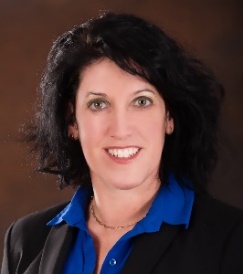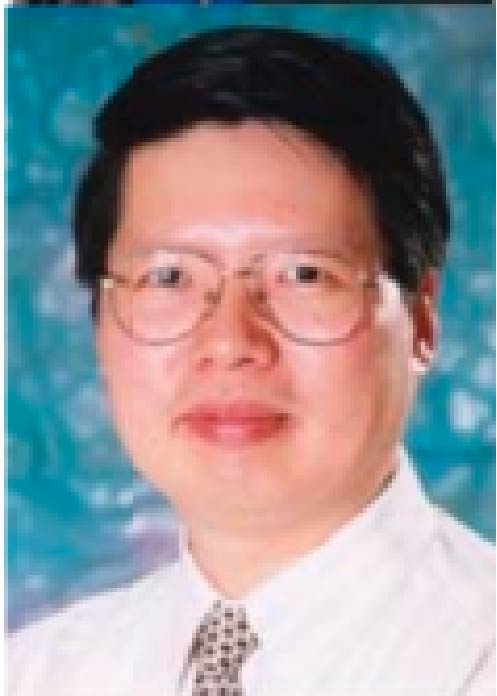Distinguished Lecturers
To request a Distinguished Lecturer (DL) for your next event, complete the DL Application Form.
Univ. Prof. Dr. Cristina Olaverri-Monreal is the president of the IEEE Intelligent Transportation Systems Society (IEEE ITSS), founder and chair of the Austrian IEEE ITSS chapter, and chair of the Technical Activities Committee (TAC) on Human Factors in ITS. She is professor and holder of the BMK endowed chair Sustainable Transport Logistics 4.0 at the Johannes Kepler University Linz, in Austria. Prior to this position, she led diverse teams in the industry and in the academia in the US and in distinct countries in Europe. She received her PhD from the Ludwig-Maximilians University (LMU) in Munich in cooperation with BMW. Her research aims at studying solutions for an efficient and effective transportation focusing on minimizing the barrier between users and road systems. To this end, she relies on the automation, wireless communication and sensing technologies that pertain to the field of Intelligent Transportation Systems (ITS). Dr. Olaverri is a member of the EU-wide platform for coordinating open road tests (Cooperative, Connected and Automated Mobility (CCAM)) as well as a representative for the European technology platform "Alliance for Logistics Innovation through Collaboration in Europe" (ALICE) for the "Workgroup Road Safety" (WG4: EU-CCAM-WG-ROAD-SAFETY@ec.europa.eu). She is additionally a senior/associate editor and editorial board member of several journals in the field, including the IEEE ITS Transactions and IEEE ITS Magazine. Furthermore, she is an expert for the European Commission on "Automated Road Transport" and consultant and project evaluator in the field of ICT and "Connected, Cooperative Autonomous Mobility Systems" for various EU and national agencies as well as organizations in Germany, Sweden, France, Ireland, etc. In 2017, she was the general chair of the "IEEE International Conference on Vehicles Electronics and Safety" (ICVES'2017). She was awarded the "IEEE Educational Activities Board Meritorious Achievement Award in Continuing Education" for her dedicated contribution to continuing education in the field of ITS. Talk #1 Intelligent automated vehicles and vulnerable road users Maximum automation in vehicles requires sensing the environment, analyzing information to make the appropriate decisions, and taking the appropriate actions. This process requires overcoming many challenges, including the detection of other road users. The protection of vulnerable road users has been an active research topic in recent years. In this context, P2V (pedestrian-to-vehicle) and V2P (vehicle-to-pedestrian) have become crucial technologies to minimize potential hazards due to the high detection rates and high user satisfaction they achieve. In this context, the trust of other road users in the technology plays a crucial role when interacting with highly automated vehicles. This presentation will provide an overview of the impact of automated technologies on road safety and identify ways to increase trust in the system. Talk #2 Effects of conditional and high levels of automation on road safety The ability to incorporate new technology-enabled functions into vehicles has played a central role in the development of motor vehicles. The widespread application of digital technologies provides the opportunity to design systems whose operation is based on multiple, interconnected applications. As a result, the development of intelligent road vehicle systems such as cooperative driver assistance systems (Co-ADAS), and thus the level of vehicle automation, is rapidly increasing. The advent of vehicle automation is leading to a reduction in driver workload. However, depending on the level of automation, consequences for passengers are foreseeable, such as out-of-the-loop conditions. This presentation will provide an overview of the impact of such technologies on traffic awareness to improve driving performance and reduce traffic accidents. It will also highlight the benefits and potential problems of vehicle automation. On Safe Autonomous Driving: Past, Present, and Future Engineers and scientists engaged in making artificially intelligent systems have successfully resolved many challenging technical problems and have demonstrated the practical viability of autonomous driving on test tracks and carefully selected roads. These are major milestones in engineering and a clear harbinger of a transformative new era of moving goods, supplies, and people from point A to point B. Yet, along with these accomplishments come many new challenges that are not only of a technical nature, but also of a broader social, legal, and even “ethical” nature. Such issues become more urgent and important as collisions and accidents involving self-driving or semi-autonomous vehicles occur more often – injuring and even killing humans in the real world. A key challenge that needs to be addressed is making sure that the artificially engineered automobiles and humans cohabit in a harmonious, safe, and secure manner. For researchers this provides the exciting opportunity to pursue important problems from a broad range of topics in distributed perception, cognition, planning, and control. We will present a “Human Centered” approach for the development of highly automated vehicle technologies. We will also present a brief sampling of contributions in the development of systems and algorithms to perceive situational criticalities, predict intentions of intelligent agents, and plan/execute actions for safe & smooth maneuvers and control transitions. We will highlight major research milestones in the autonomous vehicles area and discuss issues that require deeper, critical examination and careful resolution to assure safe, reliable, and robust operation of these highly complex systems in the real world. Talk #1 Cybersecurity for Autonomous Systems Autonomous vehicle technologies have matured to a stage for applications. Autonomy is an integration of multiple technologies, such as sensing, perception, decision and execution. Each application imposes various constraints and limitations to the above technologies and integration. This talk presents our efforts on development of some technologies for a new generation of autonomous environmental service including autonomous navigation for street sweepers, high-fidelity teleoperation and cyber security for autonomous systems. In particular, this talk focuses on the cybersecurity of autonomous systems. We consider cybersecurity for four scenarios including two attacks on prime sensors and two attacks on actuation systems. Our detection frameworks are described and experiments are illustrated to show the effectiveness. Talk #2 Multi-Robots Collaborative Mapping and Formation Keeping
Linz, Austria
San Diego (CA), USATalk # 1

Singapore